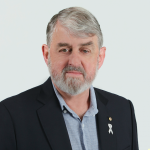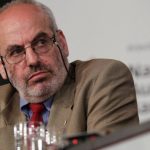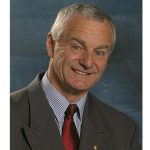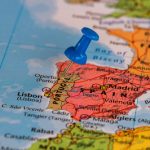PM’s Continuing ‘War on Drugs’ Rhetoric Ignores That There’s a Better Way
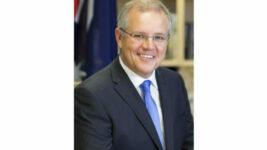
During an 8 June press conference, PM Scott Morrison called on Australians to reject illicit drug use, as “it fuels organised crime in this country, as well as “human misery” here and in many “parts of the world”.
The prime minister rolled out the drug war rhetoric as he and other officials announced the success of Operation Ironside, a global organised crime investigation run jointly by the AFP and the FBI.
Over 220 arrests have been made domestically, and the importation of tonnes of drugs was allegedly prevented.
The sting further raised eyebrows due to its use of a fake encrypted messaging app, ANOM, which crooks were duped into using. And suggestions have been made that the US partnered with our nation due to 2018 enacted laws that permit these enhanced surveillance capabilities.
But as the PM implored Australians not to take drugs in order to prevent crime, he neglected to mention that it’s the century-old prohibition of certain drugs that’s led to the establishment of large criminal networks, and further that such seizures have no real effect on the market.
Drug busts don’t affect availability
The June 2011 Global Commission on Drug Policy report outlines that one of the key outcomes of the 1971 launched war on drugs – with its enhancement of the law enforcement side of drug prohibition – has been the growth of “a huge criminal black market”.
Prior to the outlawing of drugs in the early 20th century these substances existed but the network of outlaw manufacturers and traffickers didn’t.
Indeed, the US gangsters of early last century, such as Al Capone, weren’t selling drugs. These crime gangs grew out of and made their fortunes from the illegal trade in alcohol, which was outlawed over a 13 year period commencing in 1920.
Australian historian Dr John Jiggens explained to Sydney Criminal Lawyers in 2019 that when law enforcement in Australia does crack down on drugs, they force the prices up, which provides extra incentive for overseas traffickers to import their wares over here.
“Commendable law enforcement efforts around the country have resulted in larger seizures and more arrests,” reads the NSW Crime Commission Annual Report 2015-16, “but they have had little, if any, effect on the quantities of prohibited drugs available for consumption in Australia.”
The NSW Crime Commission’s assertion is well understood amongst Australian law enforcement bodies. A Queensland police official made a similar admission in 2015, stating that “the impact of law enforcement action has very little impact on the price or availability of the substances”.
Prohibition causes most harm
Morrison’s “just say no” approach to drugs has never worked, not since US first lady Nancy Regan started applying it in the late 1980s. And the PM’s assertion that “there’s nothing social about illicit drug use in this country” is way off the mark.
Just as Morrison likes to enjoy the legal drug of choice, alcohol, while he socialises at the footy, other Australians, even quiet ones, like to smoke cannabis while they watch the game. And the thousands who take party drugs at music festivals would certainly refute his “nothing social about it” point.
The PM is correct in saying that drug use can ruin lives. But it’s increasingly understood that most of the harms associated with illicit substance use are caused by the outlawing of the drugs, and that prohibition causes barriers to accessing help in relation to the actual harms substances cause.
A legalised and regulated drug market would eradicate the organised crime related to illicit substances. It would also bring quality control into play.
The removal of illegal status would promote those with problematic drug use to seek help. And Morrison could stop spending so much on law enforcement.
Greater surveillance capabilities
Yet, despite the claims of various government agents, it’s highly unlikely that this week’s media circus was actually about protecting “quiet Australians” from illegal drug use, as rather, the real triumph for government was finally being able to show it had broken through encrypted messaging.
European Union police agency Europol described its side of the operation as the “biggest ever law enforcement operation against encrypted communication”.
Former Australian PM Malcom Turnbull and then attorney general George Brandis announced their intention to pass laws to break through encryption in July 2017.
Questions were raised back then as to whether, as part of the Five Eyes alliance, it was Australia’s turn to take the lead on passing laws to get around encrypted messaging. While, in December 2018, Morrison and Peter Dutton oversaw the passing of the Assistance and Access Bill, which did just that.
But while the authorities are talking about the benefits of breaking through encryption in terms of facilitating the capture of drug traffickers and preventing potential murders, these capabilities can be turned on all citizens.
As one journalist asked the PM on Tuesday whether the US had collaborated with Australia due to our legal capabilities to get around encryption, Morrison simply replied, “I’ll leave it to the United States in their various media statements to say what they wish to say”.
Receive all of our articles weekly
Related Articles
RELATED LEGISLATION
- Section 10 Drug Misuse and Trafficking Act 1985 | Drug Possession
- Section 23 Drug Misuse and Trafficking Act 1985 | Cultivating, Supplying or Possessing Prohibited Plants
- Section 24 Drug Misuse and Trafficking Act 1985 | Drug Manufacture or Production
- Section 25 Drug Misuse and Trafficking Act 1985 | Drug Supply



